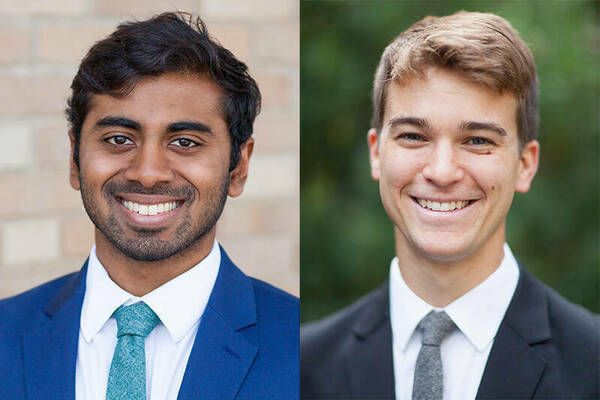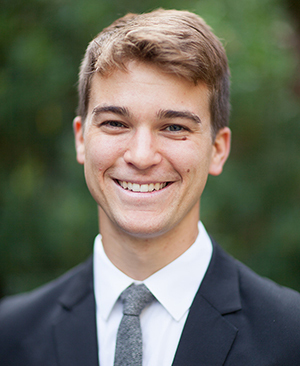
A Notre Dame undergraduate and a master’s degree student have been awarded the Dante Society of America’s two top student essay awards, which the Society has been presenting annually since 1887.
Dale Lobo ’16, a science pre-professional major and theology minor, won the Dante Prize for best undergraduate essay related to the life or works of Dante, the renowned Italian poet.
Thomas Graff, who received his master’s in Italian studies at Notre Dame this spring, won the Charles Hall Grandgent Award for best essay on Dante by a graduate student.
“The entire Italian studies community at Notre Dame is justly proud that Dale and Thomas have been recognized this year for their scholarship,” said Theodore Cachey Jr., a professor of Italian and Albert J. and Helen M. Ravarino Family Director of Dante and Italian Studies.
 Dale Lobo
Dale Lobo
“I don’t believe it has ever happened before that students from the same university have won the Dante Prize and the Grandgent Award in the same year. We congratulate these outstanding students and their teachers.”
With Christian Coppa ’14—now a Ph.D. student at the University of Cambridge—winning the Dante Prize in 2014, Notre Dame students have now won the Dante Society’s top prizes three times in the last three years.
Graff credits the streak of success to faculty members in the Devers Program in Dante Studies, including Cachey, Zygmunt Barański, Christian Moevs, and Vittorio Montemaggi, and the strong tradition of scholarship on Dante at Notre Dame, evidenced by the extensive collection of the poet’s works at the Hesburgh Libraries.
“They are doing really great work in creating a culture around the literature and teaching undergraduates really consistently and cultivating that interest within,” he said.
Lobo, who currently works at South Bend nonprofit enFocus and is planning to attend medical school, had never studied Dante before registering for a Dante II course taught by Moevs, an associate professor of Italian in the Department of Romance Languages and Literatures.
His winning essay started as a final project for that class, focusing on the motif of the “pome,” Italian for apple or fruit. In Dante’s Divine Comedy, it is a symbol for the 10th heaven, Lobo said, and he analyzed how that mirrors the human person or soul being a sign of its source from God.
After meeting with Moevs regularly and doing his own research, Lobo said his final paper ended up being far more than what was required for the class.
 Thomas Graff
Thomas Graff
“It was the last paper I wrote for college, and I wanted it to be something I liked and was proud of,” he said. “I spent a lot of time on it, but I was surprised he thought it something worthy of being submitted, and I was even more surprised to be awarded the prize.”
Graff, who majored in Italian studies as a Notre Dame undergraduate, submitted an essay that was a condensed version of his master’s thesis. He examined Dante’s relationship with Virgil, the poet who takes Dante through Hell and Purgatory in the Comedy.
“Virgil isn’t just a guide, he’s an inhabitant of Hell. So there’s this drama of him being damned but still having lived a virtuous life,” he said. “Dante forces us to consider all these questions of nature and grace and salvation for these more dramatic and confusing cases that he wants to call into question.”
Montemaggi, an associate professor of religion and literature in the Department of Romance Languages and Literatures, advised Graff’s thesis.
“In carrying out this work, Thomas was able to combine in remarkably productive ways detailed literary analysis with precise theological reasoning, and he was able to do so in fresh and creative ways,” Montemaggi said. “His work is a pleasure to read and—needless to say—I am delighted by the awarding of the prize.”
Originally published by Megan Valley at al.nd.edu on December 13, 2016.